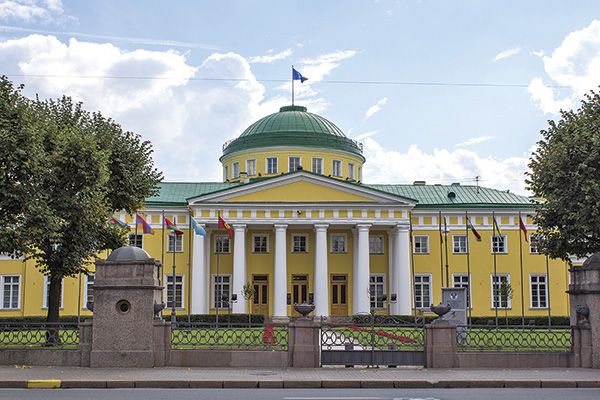
The Tauride Palace in St. Petersburg
The Belarusian delegation was led by the Deputy Chairman of the Council of the Republic, Anatoly Rusetsky, who met PACE Chairman Pedro Agramunt. Importantly, their meeting was initiated by the Europeans. “We discussed a range of issues, including the development of our relations,” Mr. Rusetsky comments. “The latter are developing constructively at present, and we’re seeing good dynamics of rapprochement. Certain issues regarding interaction need attention but we’re primarily pleased with Europe’s stance: we need to solve our problems constructively, through dialogue, to reach the best decisions.”
The meeting also focused on issues of ‘inter-parliamentary co-operation and other problems of mutual interest’. Mr. Rusetsky gave Mr. Agramunt an invitation to visit Belarus, which the latter accepted with gratitude. It’s too early to speak of dates for the official visit, since schedules must be checked, but PACE is interested in Belarus taking a more active role in its work.
The St. Petersburg session also focused on issues of inter-parliamentary interaction, with delegation heads discussing such areas as terrorism and mass migration to Europe. As regards Belarus, European parliamentarians are primarily interested in our first nuclear power station (being built in Ostrovets).
“I informed our European colleagues that we’re meeting all demands regarding construction technologies, and are co-operating with the IAEA, preparing to pass ‘stress tests’. We’ve already passed the ‘assessment of environmental influence’ test,” Mr. Rusetsky tells us. According to the Deputy Speaker, European deputies are changing their attitude towards the topic, which is pleasing. If an issue arises, it’s important to study attentively and attract specialists as necessary, acting constructively, rather than giving ultimatums.
By Alexander Benkovsky











